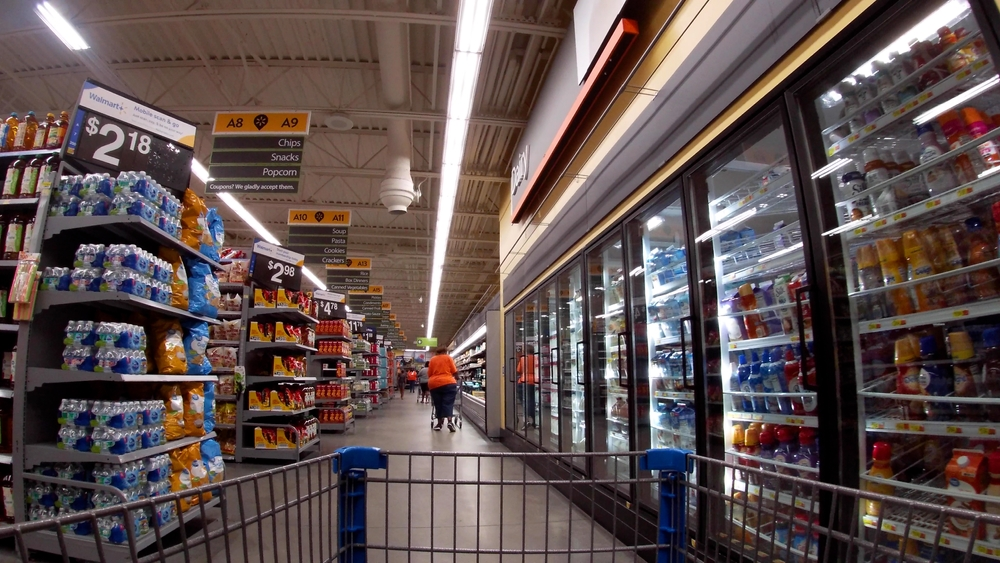Walmart Now Catering To Neurodivergent Shoppers
Brick-and-mortar spaces want to do all they can to bring in customers.
The modern day shopping experience is a sensory overload, and that's by design. There are a million brightly colored packages on the shelves clamoring for your attention, music playing from speakers every three feet, harsh fluorescent lighting, and, depending on the time of day, people everywhere, pushing carts you have to maneuver around. That environment can be unpleasant for many of us, but for those with sensory processing issues like PTSD, ADHD, and autism, it can make shopping virtually impossible.
Walmart has announced that starting November 10, it will designate the hours of 8 a.m. to 10 a.m. every day as "sensory-friendly," meaning that its stores will accommodate neurodiverse customers by making the shopping experience "a little easier on the eyes and ears."
Walmart’s plans for sensory-friendly shopping hours
Earlier this year, Walmart made some key changes to store operations for a few hours each Saturday to make it easier for people with sensory issues to shop. TV walls were changed to display a static image rather than moving ones, the overhead music was turned off, and lighting was dimmed wherever possible. Customer feedback for the program was so positive that now the company is implementing these hours every day in the United States (including Puerto Rico), "with no planned end date" in mind.
"These changes are thanks to those who shared their feedback on how their stores could help them feel like they belong," reads the announcement in part.
Other stores with special shopping hours
In 2018, British grocery store chain Morrison's adopted what it called "quieter hour," which involved low lighting, less beeping from registers, no music, and reduced grocery cart movement, each Saturday from 9 a.m. to 10 a.m. This change also served as a way to teach employees how to interact with shoppers with autism. Other U.K. chains have adopted this practice as well, including Channel Islands Coop and electronic store Curry's.
Additionally, during the beginning of the pandemic, some stores reserved their earliest hours of the day specifically for seniors, in order to protect older shoppers who are more susceptible to illnesses.
Inclusion is always a great thing, but it also serves the other purpose of keeping the door open for all shoppers, including the ordinarily reluctant ones who would otherwise prefer to shop online or opt for another retailer. This just goes to show that brick-and-mortar shops are still working on new ways to keep people coming in the door.
